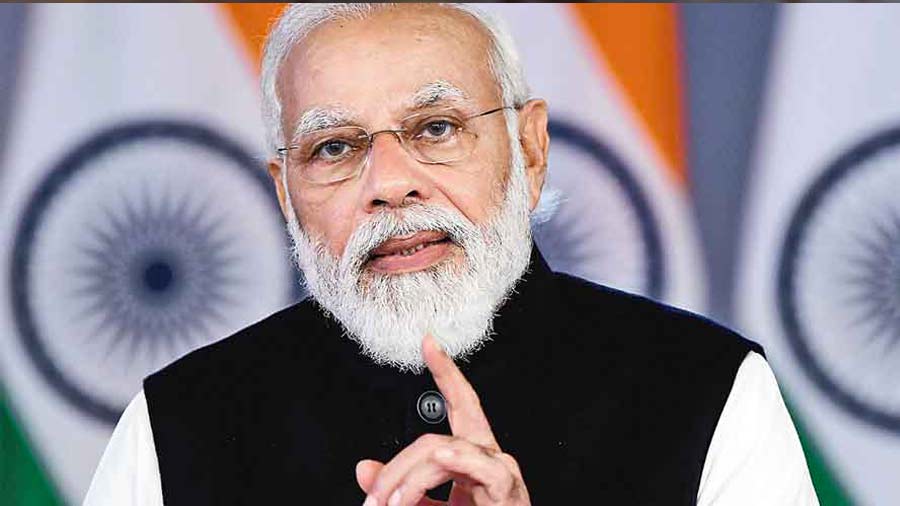The thought of pre-primary infants becoming part of a formal, centralised education system is alarming. The Narendra Modi government, with a sudden admiration for scientific findings, has decided that since children’s brains develop most rapidly until they are eight, it must concentrate on them from three years onwards for their ‘cognitive development’ and ‘socio-emotional stimulation’. The focus on nutrition and play of the anganwadis is now to be abandoned. That a child’s brain grows best with the free play of curiosity is irrelevant. The Centre has a mission. Play, too, will be under direction: the curriculum proposed for the infants includes physical development through traditional games and yoga. All this is because pre-primary children under the Central government will be subjected to a syllabus based on the Upanishadic Pancha Kosha, of which one aspect is physical development. The koshas move through emotional development to intellectual and finally to spiritual development or experience of the Transcendent.
The impact on three- to eight-year-olds is likely to be unprecedented. The ostensible aim is to undo the damage done by the British by basing education in the Indian ethos, as announced by the National Education Policy. The youngest minds are obviously the most suitable for moulding with this purpose in mind. Lessons will aim at invoking the values of patriotism, sacrifice, non-violence, nishkam karma, tolerance, peace, love, honesty, equality, respect for women and so on. If it is possible to ignore the fatuousness of teaching three- and four-year-olds patriotism and nishkam karma, the sinister nature of the design becomes clear. For it is a design — in the form of a curriculum that will pull little ones into formalised education that would destroy freedom of perception and understanding from the earliest period. The classes will teach reasoning: they will not learn to reason independently. All lessons will be directed towards the goal of making the little subjects of education ‘Indian’. Would a model that encourages passivity help meet India’s avowed goal of matching international standards in learning and curriculum? Moreover, the values to be inculcated are not those of the curriculum planners — rulers are neither nishkam nor tolerant, let alone non-violent or respectful towards women. The aim, then, is to create a nation of obedient subjects proud of being ‘Indian’ without a critical or thinking bone in their yoga-practised bodies. The eagerness to seize on yet unformed three-year-old minds is, therefore, perfectly understandable.










